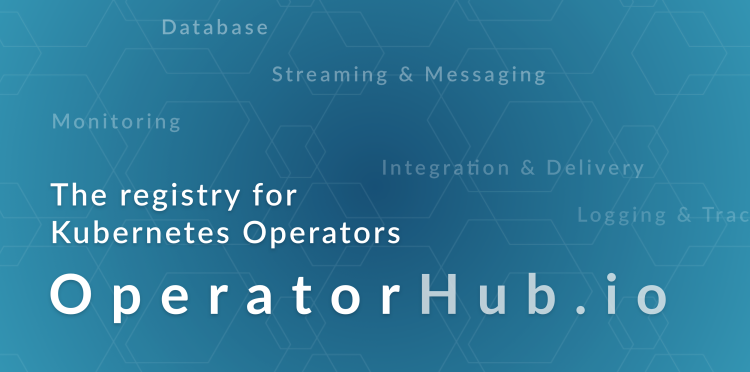In collaboration with Microsoft, Google Cloud, and Amazon Web Services, Red Hat today launched OperatorHub.io, a “public registry” for finding services backed by Kubernetes Operators — methods of packaging, deploying, and managing Kubernetes-native applications — that have been quality-tested for users.
As Red Hat’s director of community development Diane Mueller explained, Operators, which were introduced by CoreOS in 2016, have surged in popularity as a way to automate infrastructure and app management using Kubernetes. However, curation efforts haven’t matched that growth — it’s somewhat challenging to find Operators, much less ones that meet baseline standards.
“With the introduction of Operator Hub, we are helping to address this challenge by introducing a common registry to publish and find available Operators,” Mueller wrote in a blog post.
Toward that end, Operator entries on Operator Hub contain descriptions of features and supported Kubernetes versions, in addition to things like Custom Resource Definitions (CRDs), access control rules, and container image references needed to install and securely run them. Mueller says that Red Hat’s launch partners worked together to formulate requirements Operators must meet before they’re considered for inclusion: They have to show (1) cluster lifecycle features, (2) packaging that can be maintained through the Operator Framework’s Operator Lifecycle Management, and (3) “acceptable” documentation for its intended users.
June 5th: The AI Audit in NYC
Join us next week in NYC to engage with top executive leaders, delving into strategies for auditing AI models to ensure fairness, optimal performance, and ethical compliance across diverse organizations. Secure your attendance for this exclusive invite-only event.
Operator Hub is currently populated by Operators including Amazon Web Services Operator, CrunchyData’s PostgreSQL, Couchbase Autonomous Operator, etcd Operator, Jaeger Operator for Kubernetes, Kubernetes Federation Operator, MongoDB Enterprise Operator, Percona MySQL Operator, PlanetScale’s Vitess Operator, Prometheus Operator, and Redis Operator. Red Hat expects the library to grow over time.
If you’re keen to submit your own Operator, head over to the community registry — that’s where you can upload the necessary YAML files. Submissions are currently being reviewed manually, but an automated process “is on the way,” according to Mueller.
“An important goal for Red Hat is to lower the barrier for bringing applications to Kubernetes. We believe that Operator-backed services play a critical role in lowering this barrier by enabling application owners to use services that can provide the flexibility of cloud services on across Kubernetes environments,” she said. “We hope that the introduction of Operator Hub will further lower this barrier by making it easier for application owners to find the Operator-backed services that they are looking for.”
Operators, for the uninitiated, are developed in the Operator Framework, an open source toolkit that comprises an SDK, lifecycle management, metering, and monitoring capabilities. They can be implemented in several programming and automation languages, including Go, Helm, and Ansible, and are capable of automating tasks like updates, backups, and scaling by using Kubernetes CLI.

